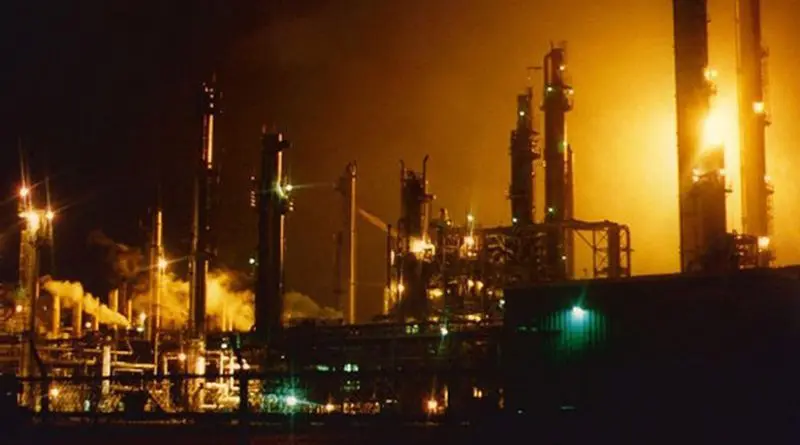Oil: A Slippery Friend – OpEd
By Osama Rizvi*
I still recall seeing articles, reading news and perusing opinions clamoring with a ‘no deal’ jargon. Belonging to the same pessimistic guild I was utterly hopeful of hopelessness regarding the first meeting in October when OPEC and Russia met, as they have many times before, to settle down the undulating oil market. But the sentiment and expectations turned topsy-turvy as soon as the mellifluous sound of ‘production cut’ was beginning to be feebly heard by those waiting outside the meeting room i.e. the world.
Words it is said have a lot of power yet it is easier said than done. Everyone was taken aback by the, otherwise aggressive OPEC, when words of cooperation were thrown into the air by Mr. Khalid Al-Falih in October meeting when it (OPEC) met with Russia on the side lines of World Energy Forum. Following at its heels was the World Energy Forum itself held in the former Ottoman kingdom now Turkey. Istanbul sprinkled positivism all around the oil markets when Russian President Mr. Putin adduced its consent that they are ready to, not to freeze, but cut its production. In a fit of reciprocity Saudi Arabia also vowed to reduce its production, an about turn from its former stance and shift of policy of maintaining the market share. The Sheikhs have promised to keep its production between 32 to 33.5 mbpd instead of 3.75 last month. Moreover, the fragile economies of OPEC and the arch competitor of KSA i.e. Iran have been exonerated from this production cut. Now these participants meet on 28thOctober in Vienna to probe more into the minutiae’s of the final verdict that is supposed to be pen down in November’s final meeting. This array of meetings has helped to elate the lolling bulls who were concerned with rising rig count and ballooning inventory levels. The bullishness is rife now with black gold touching a year high of $53.70.
However, a scrupulous rubbernecking glimpse into the well of positivism filling of-late one can see volatility and uncertainty seeping through the foundations. While KSA has decided to slow down its drilling machines in an attempt to ameliorate the pain it is feeling in the shape of budget holes, subsidy removals and cut in salaries of employees also a horde of grumbling public that are in wont of government largesse in shape of leisure and spending, the time superimposes with the commencement of winter season in which, as a common practice, the kingdom squeezes its production. Russia’s Rosneft (which has a 40% share in Russia’s total oil production) Head, Igor Sechin, also spilt cold water on the plans when he refused to be part of any deal. Ergo, the concern and questions regarding the implementation and sustainability of the impending deal.
Few days back Paris based IEA released its October oil market report which helped to balance the surging bullishness. It has reduced down the demand growth from 1.3mbpd in September to 1.2mbpd in its latest publication. Growth keeps on falling “dropping from a five-year high in 3Q15 to a four-year low in 3Q16” the reports say. The reason remains the same: “vanishing OECD growth and a marked deceleration in China”. About 0.6mbpd were injected into the glut mostly due to the record production by the 14 member cartel of about 33.64mbpd “in September as Iraq pumped at the highest ever and Libya reopened ports”. Due to the refinery maintenance season the inventory levels at Cushing, Oklahoma added up 4million barrels, the largest gain in six weeks. Rig count is also up as Baker and Hughes reported an additament of 4 rigs making the total 432. A bearish admonition can easily be deciphered by the aforesaid facts and figures.
Production from the Kashagan oil field has also started which is supposed to bring 370, 000 unwanted barrels per day into the already engorged oil market. While around $1trillion of E&P projects have been cut off by energy giants all around the world the production coming from this field, biggest ever to be discovered in 4 years, marks an oddity in the trend. Also note that Kazakhstan (the country in which the field is located) is not a member of OPEC hence, if the estimates are correct the middle-eastern producer is not going to pay any heed to the cries of those battered due to low oil prices.
Mr. Fereydoun Barkeshli, Head of Vienna Energy Centre, said to me in response to a question that does he share the recent bullishness: “As you are fully aware the international oil market is too complicated. I remember, late Robert Mabro once told me that you could easily be labeled as a great liar for having said something totally right and vise a versa. However, for OPEC it’s now a very crucial moment in that for the first time in its history, non-OPEC producer are coming onboard and show willingness to cooperate. That would mean an enlarged OPEC.A realization by other producers that OPEC cannot handle the supply/demand balance all by itself. Experts from OPEC and non-OPEC will meet end of October to discuss options for cooperation so that by November OPEC ministerial conference there should be an agenda on the table. Russia is a determining factor. If they come onboard, I would share that positivism.” I totally concur with his viewpoint.
It all comes down to one point: Demand. The re-balancing act will not and cannot be executed until or unless the maws of energy importers (like China) don’t open up wide enough to bibble down the excess oil. Otherwise, the circle will continue to start anew. Prices up, more rigs, more production… glut. Oil prices down, rigs fall, production fall consequently providing the buoyancy for the price and we will be stuck forever in this oily imbroglio.
About the author:
*Osama Rizvi, Independent economic analyst, Writer and Editor
Source:
This article was published by Modern Diplomacy

